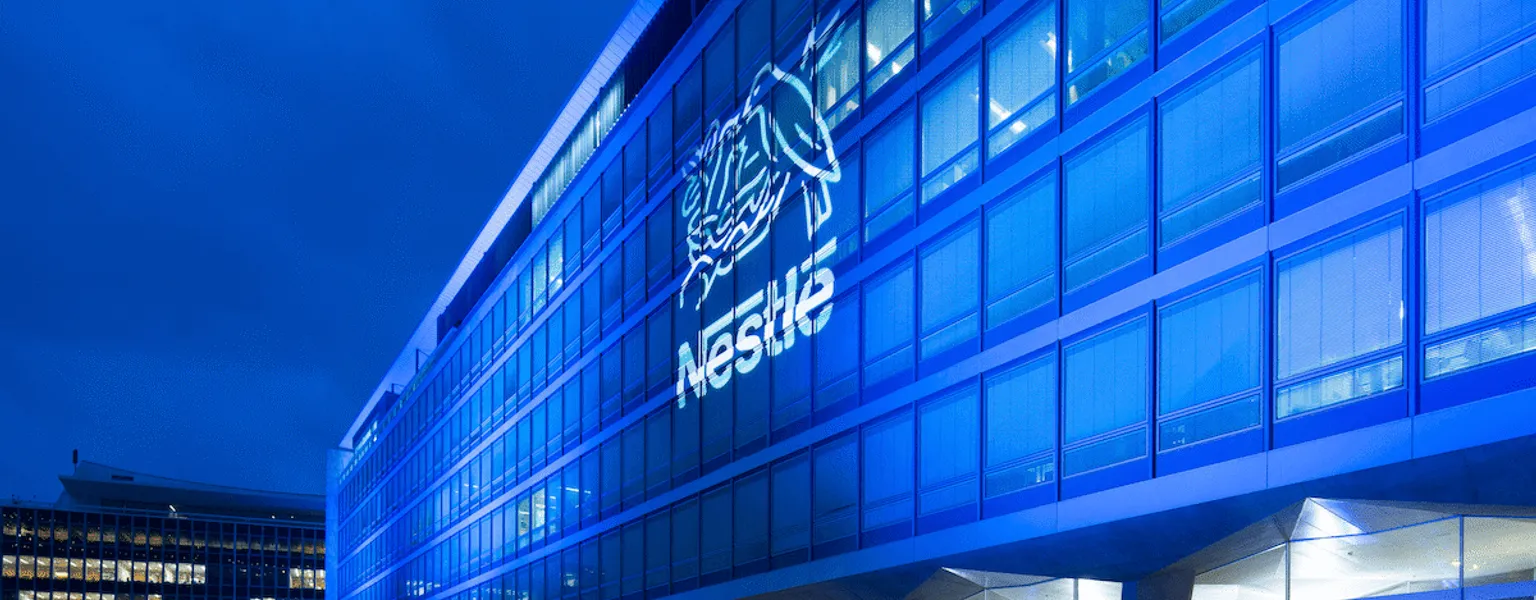Nestlé and IBM leverage AI and deep tech to unlock new packaging innovations

Technology
Nestlé R&D is partnering with IBM Research to develop new tools that leverage the power of Artificial Intelligence and deep tech to bring breakthrough innovations to life. This research collaboration has led to the development of a generative AI tool that can identify novel high-barrier packaging materials.
Packaging helps to protect food and beverages while also preventing food waste. Nestlé is continuously reducing the use of virgin plastic, pioneering the use alternative materials and novel technologies, and moving to recyclable mono-material and paper-based solutions. Identifying new packaging materials that meet each product’s functional needs while ensuring food safety and quality is often meticulous. In some cases, this requires years of research.

Nestlé and IBM scientists leveraged AI-based processing techniques to construct a knowledge base of known materials from public and proprietary documents. Subsequently, the team fine-tuned a fit-for-purpose chemical language model on this curated corpus, enabling it to learn the representation of the molecular structures. Using that knowledge, the teams leveraged the recently developed regression transformer by IBM Research to learn the correlation between key structural molecular features and the resulting physical-chemical properties. The resulting model can now propose entirely new high-barrier packaging materials that shield sensitive products from moisture, temperature swings and oxygen.
Nestlé will utilise this novel technology to identify future packaging materials, while considering cost, recyclability, and functionality.
Stefan Palzer, Nestlé Chief Technology Officer: This novel AI-powered language model, developed in collaboration with IBM Research, illustrates how Nestlé is leading the digital transformation within the food and beverage industry. In the future, such breakthrough technology could be used to optimise the development of more sustainable packaging solutions across product categories.
Alessandro Curioni, IBM Research VP Europe & Africa: We do believe that Generative AI will continue to disrupt scientific discovery, impacting the core business of all knowledge-based industries, allowing critical differentiation and sustainable growth.
Nestlé continues to leverage AI, machine learning, data science and automation to support innovation and help manage complexities. For example, Nestlé has developed a recipe optimisation tool that uses advanced algorithms to help product developers better manage tradeoffs between ingredients, nutrition, cost and sustainability, while still meeting consumer expectations. The company also uses digital twins of equipment and production lines to optimise manufacturing processes and has developed digital tools to deliver personalised nutrition solutions for people and pets.
Nestlé recently announced the creation of a new R&D centre for deep tech, a first-of-its-kind in the food and nutrition industry. The new centre will screen, test and develop new generations of sensors, robots, coding systems, high-performing AI and virtual/mixed reality solutions to increase efficiency in research, innovation and operations.
Related News
-
Sustainability
Nespresso expands green bag coffee capsule recycling scheme across Quebec
-
Technology
Nestlé rolls out AI-powered digital twin platform for packaging and product content
-
Sustainability
Nestlé introduces 'Self-Packing Cheese' with biodegradable whey-based packaging
-
Sustainability
Nestlé Purina unveils 100% recycled plastic packaging for Friskies cat treats
-
Sustainability
Nestlé trials recyclable paper tubs for Quality Street




